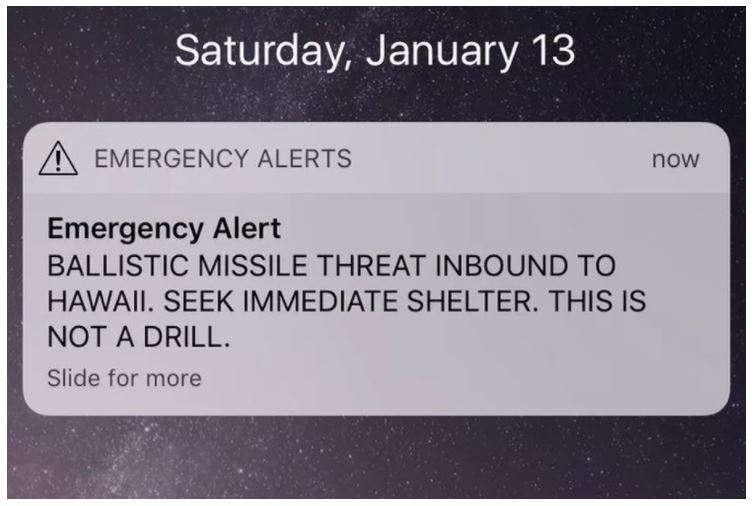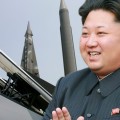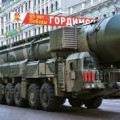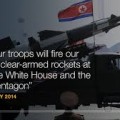
Hawaii residents received false emergency alert about an incoming missile – Rep. Tulsi Gabbard
Hawaii’s recent “false alarm” about an inbound missile created so much panic due to the credibility of an actual nuclear attack.
The reality that the entire U.S. mainland, and indeed, much of the world, is now in range of North Korea’s nuclear capability is a sobering one, particularly when combined with the fact that even Pyongyang’s limited atomic arsenal is fully capable of destroying the entire USA through an electromagnetic pulse (EMP) attack.
Over the past several decades, the U.S. government “gave peace a chance.” The US failure to take a hard line against the nuclearization of the Korean peninsula only served to encourage the successive Kim regime’s hostile policies.
President Bill Clinton first tried buying off North Korea with aid. President George W. Bush largely ignored the crisis as he concentrated on the Middle East. President Barack Obama reduced the size of the U.S. military. All of those failed approaches culminated in Saturday’s missile attack false alarm.
Kim Jong-un has observed that, over the past 8 years, the U.S. was kinder to its enemies than its friends. The entire Obama Mideast policy tilted in favor of Iran, despite that nation’s constant devotion to the policy of “Death to the USA.” Meanwhile, Obama assisted in the deposing of Libya’s Muammar Gaddafi, who had given up his nuclear program and turned away from terrorism. The same thing occurred in Egypt, which under Mubarak had favored peace in the region and a rejection of terrorism. Obama also urged his ouster, and favored his replacement with a Moslem Brotherhood advocate.
From Kim’s perspective, his actions are wholly rational. He is doing what he has observed led to the enrichment and survival of regimes such as those in Iran, and avoiding the policies of those governments such as that of Libya, which acceded to U.S. demands and were subsequently wiped out. Add to that the fact that, despite the horrors of his regime, he now has China and Russia openly advocating the U.S. abandon its South Korean ally in return for North Korea’s pledge to eliminate its nuclear arsenal, a pledge North Korea has repeatedly violated, and one can easily discern the logic of what Kim is doing.
After all the years of equivocation by Washington, Kim does not believe the U.S. will take any action, so he feels free to engage in whatever provocation he wishes, assured that he can only gain by aggression, and lose by compromise.
Kim also knows that the state of American politics is such that President Trump will be portrayed by leftist within the U.S. as a warmonger if he takes any military steps against North Korea. Kim is also fully aware that the American military is at its lowest level of strength in many years, a result of the disinvestment that occurred as a result of both Obama’s policies and the congressional sequester.
There are steps short of military action available to Washington. An attempt must be made to induce China to act more responsibly by beginning to limit the importation of Chinese goods to the U.S. and allied nations. America’s commitment to its Asian and Pacific allies, and the permanence of that commitment, must be made clear through the enhanced placement of military assets in the region. The U.S. anti-ballistic missile shield should be dramatically strengthened. U.S. powerplants should be hardened against an EMP attack. And, of course, the disinvestment in America’s armed forces must be reversed, even more so than the recent defense budget provides.
It is far too easy to portray the North Korean regime as being irrational. Each action it has taken has had a proven track record of success—all of it leading to the current and very real crisis and threat of nuclear attack. Until the United States clearly demonstrates to Kim and his allies in Beijing and Moscow that there will be dire consequences, the world will move ever closer to nuclear war.
Frank Vernuccio serves as editor-in-chief of the New York Analysis of Policy and Government.
















Follow Us